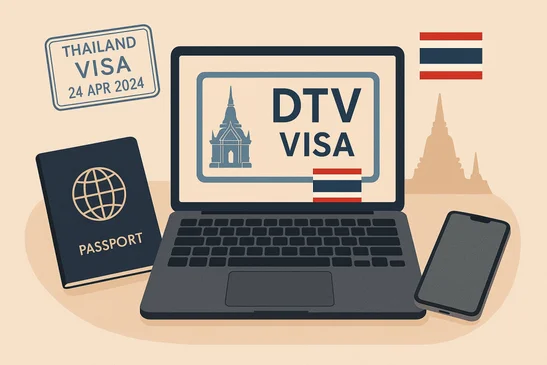Phuket can be an attractive place to start up a business. The booming economy, tropical island setting, and low barrier of entry have enticed many an enterprising expat to try their hand at starting up a company. Phuket offers up many promising opportunities to tap into one of Southeast Asia’s premier tourist destinations. The burgeoning expat population combined with the island’s millions of annual tourists creates ample possibilities. Seasoned business people will have a good idea how to start navigating Phuket’s business climate, however, many fail due to a lack of understanding of the specific details and idiosyncrasies particular to the region. Navigating Thai laws, culture, and bureaucracy requires patience, understanding, and careful planning. Here’s a practical guide to launching a successful business in Phuket.
Your Business Concept

Image by 8photo on Freepik
It may seem overly simplistic, but before diving into the legal and administrative side, it’s important to thoroughly vet your business idea. Especially if you haven’t lived here long, familiarize yourself with Phuket’s seasonal economy, tourist demographics, and expat needs. A few of the most popular sectors include hospitality, the service industry, fitness and wellness, and property-related ventures. Learn and understand who your targeted demographic will be and the extent of your local competition. There are endless tales of foreigners hastily dumping their savings into another bar, restaurant, cafe, or scooter rental shop only to learn the market was saturated or the competition was stiffer than expected.
Understand Thai Company Structures
The first thing any potential Phuket entrepreneur needs to know is that foreigners cannot legally own 100% of a Thai company (with a few very specific exemptions). A Thai Company Limited must be majority Thai owned – at least 51 percent of shares must be owned by Thai nationals. That being said, foreign partners often maintain control by holding the majority of voting rights through various legal structures. It’s important to beware that using a nominee, where a Thai is a shareholder on paper only, is technically illegal and there has been a recent crackdown on companies operating in this way.
Register Your Business

Image by jcomp on Freepik
The first step towards getting your business up and running is hiring a lawyer or accountant to obtain all of the relevant paperwork and complete the registration process through the Department of Business Development (DBD).
The notable steps of this process include:
- Reserving the company name
- Preparing a Memorandum of Association
- Registering the company
- Obtaining a Tax ID number and VAT registration if applicable (necessary if annual revenue exceeds THB 1.8 million)
- Securing relevant licenses such as a tourism license, restaurant license, alcohol sales license, etc.
Things necessary during this process include proof of registered investment capital, a physical address and office, a company bank account, etc.
Obtain a Work Permit and Visa
To legally work for your company, you need both a valid visa (typically a Non-B visa) and a work permit. This requires proof of company registration, a Thai bank account, office lease documents, and hiring at least four Thai employees for each work permit associated with the company. In many cases you will have to apply for the Non-B visa at a Thai embassy outside of Thailand.



















